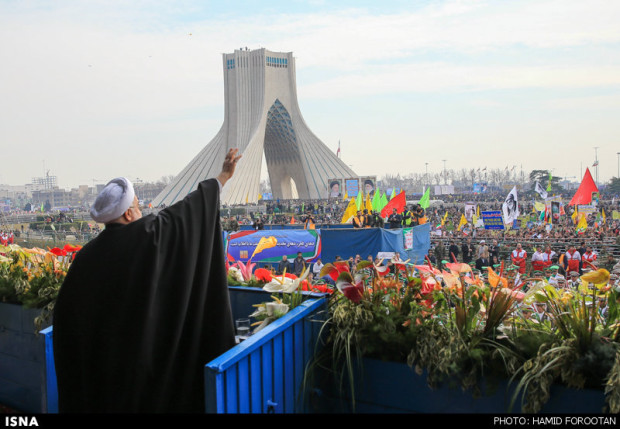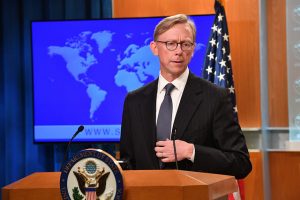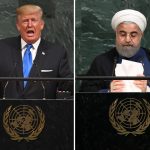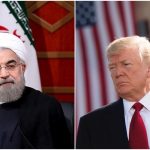by Hooshang Amirahmadi
President Barack Obama’s move towards normalization of relations with Cuba has generated lots of hope and analyses that a similar development may take place with Iran. Jim Lobe, founder of the Lobe Log and Washington Bureau Chief of the Inter Press Service, is one such observer. His recent article offers an excellent elaboration of the arguments. I rarely comment on writings by others, but his article deserves a response.
Lobe writes, “In my opinion, Obama’s willingness to make a bold foreign policy move [on Cuba] should—contrary to the narratives put out by the neoconservatives and other hawks—actually strengthen the Rouhani-Zarif faction within the Iran leadership who are no doubt arguing that Obama is serious both about reaching an agreement and forging a new relationship with the Islamic Republic.”
As someone who has spent 25 years trying to mend relations between the US and Iran, I wish Mr. Lobe and his liberal allies were right, and that their “neoconservative” opponents were wrong in their assessments that after Cuba comes Iran; unfortunately they are not. The truth is that Obama cannot so easily unlock the 35-year US-Iran entanglement that involves complex forces, including an Islamic Revolution.
First, Iranian Foreign Minister Javad Zarif and President Hassan Rouhani used to tell Supreme Leader Ali Khamenei that Obama could be trusted, but after 14 months and many rounds of negotiations, they have now subscribed to Khamenei’s line that the US cannot be trusted. Iran’s nuclear program has already been reduced to a symbolic existence but the promised relief from key sanctions, Rouhani’s main incentive to negotiate, is nowhere on the horizon.
During the meeting in Oman between Kerry and Zarif just before the November 24, 2014 deadline for reaching a “comprehensive” deal, as disclosed by the parliamentarian Mohammad Nabavian in an interview, “[Secretary of State] Kerry crossed all Iranian red lines” and Zarif left for Tehran “thinking that the negotiations should stop.” One such red line concerns Iran’s missile program, which is now included in the negotiations over Iran’s nuclear program.
In a recent letter to his counterparts throughout the world regarding the talks and why a comprehensive deal was not struck last November, Zarif writes that “demands from the Western countries [i.e., the US] are humiliating and illegitimate” and that the “ball is now in their court.” Partly reflecting this disappointment, the Rouhani Government has increased Iran’s defense and intelligence budgets for 2015 by 33 percent and 48 percent respectively (the Iranian calendar begins on March 21).
Second, Zarif and Rouhani could not make the “beyond-the-NPT” concessions that they have made if the supreme leader had not authorized them. The argument that Khamenei and his “hardline” supporters are the obstacle misses the fact that while they have raised “concern” about Iran’s mostly unilateral concessions and the US’s “rapacious” demands, they (particularly the supreme leader) have consistently backed the negotiations and the Iranian negotiators.
Third, Lobe’s thinking suggests that the problem between the two governments is a discursive and personal one: if Khamenei is convinced that Obama is a honest man, then a nuclear agreement would be concluded and a new relationship would be forged between the two countries. What this genus of thinking misses is a radical “Islamic Revolution” and its “divine” Nizam (regime) that stands between Washington and Tehran.
The Islamic Revolution has been anti-American from its inception in 1979 (and not just in Iran), and will remain so as long as the first generation revolutionary leaders rule. The US has also been hostile to the theocratic regime and has often tried to change it. No wonder Khamenei and his people view the US as an “existential threat,” and to fend it off, they have built a “strategic depth” extending to Syria, Iraq, Lebanon, Yemen and other countries.
Fourth, several times in the past the Iran watchers in the West have become excited about elections that have produced “moderate” governments, making them naively optimistic that a change in relations between the US and Iran would follow. What they miss is that the Islamic “regime” (nizam) and the Islamic “government” are two distinct entities, with the latter totally subordinated to the former.
Specifically, the Nizam (where the House of Leader and revolutionary institutions reside) is ideological and revolutionary, whereas the government has often been pragmatic. Indeed, in the last 35 years, the so-called hardliners have controlled the executive branch for less than 10 years. The division of labor should be easy to understand: the Nizam guards the divine Islamic Revolution against any deviation and intrusion while the government deals with earthly butter and bread matters.
Fifth, to avoid a losing military clash with the US and at the same time reduce Washington’s ability to change its regime or “liberalize” it, the Islamic Republic has charted a smart policy towards the US: “no-war, no-peace.” The US has also followed a similar policy towards Iran to calm both anti-war and anti-peace forces in the conflict. Thus, for over 35 years, US-Iran relations have frequently swung between heightened hostility and qualified moderation (in Khamenei’s words, “heroic flexibility”).
Sixth, the Cuban and Iranian cases are fundamentally dissimilar. True, the Castros were also anti-American and are first-generation leaders, but Fidel is retired and on his deathbed while his brother Raul has hardly been as revolutionary as Fidel. Besides, with regard to US-Cuban normalization, Fidel and his brother can claim more victory than Obama; after all, the Castros did not cave in, Obama did. Furthermore, the Castros are their own bosses, head a dying socialist regime, and are the judges of their own “legacy.”
In sharp contrast, Khamenei subscribes to a rising Islam, heads a living though conflicted theocracy, and subsists in the shadow of the late Ayatollah Khomeini who called the US a “wolf” and Iran a “sheep,” decreeing that they cannot coexist. Indeed, in the Cuban case, the US held the tough line while in the case of Iran, the refusal to reconcile is mutual. Furthermore, the Cuban lobby is a passing force and no longer a match for the world-wide support that the Cuban government garners. Conversely, in the Iranian case, Obama has to deal with powerful Israeli and Arab lobbies, and the Islamic Republic does not have effective international support.
On the other hand, we also have certain similarities between the Cuban and Iranian cases. For example, both revolutions have been subject to harsh US sanctions and other forms of coercion that Obama called a “failed approach.” Obama is also in his second term, free from the yoke of domestic politics, and wishes to build a lasting legacy. Despite these similarities, the differences between the Iranian Islamic regime and the Cuban socialist system make the former a tougher challenge for Obama to solve.
Finally, while I do not think that the Cuban course will be followed for Iran any time soon, I do think that certain developments are generating the imperative for an US-Iran reconciliation in the near future. On Iran’s side, they include a crippled economy facing declining oil prices, a young Iranian population demanding transformative changes, and the gradual shrinking of the first-generation Islamic revolutionary leaders.
On the US side, the changes include an imperial power increasingly reluctant to use force, rising Islamic extremism, growing instability in the Persian Gulf and the larger Middle East, and the difficulty of sustaining the “no-war, no-peace” status quo in the absence of a “comprehensive” deal on Iran’s nuclear program. However, on this last issue, in Washington and Tehran, pessimism now far outweighs optimism, a rather sad development. Let us hope that sanity will prevail.
Photo: Iranian President Hassan Rouhani greets a rally in commemoration of the Islamic Republic’s 35 anniversary of its 1979 revolution in Tehran, Iran on Feb. 11, 2014. Credit: ISNA/Hamid Forootan






Mr. Amirahmadi is right on spot! “No peace No war” is the US strategy executed by the commonly known tactic as extending the negotiations until the end of Obama’s presidency term! The Iranian negotiators will eventually walk away because the leader of Iran WILL not capitulate to the ever increasing demands made by the west and US in particular. I hope I’m wrong and the US and Iran will eventually reconcile their differences but the reconciliation is improbable because the US Administration and the US congress have already capitulated to their existentialist forces!!
I agree that Iran is not Cuba, just due to the fact that Iran has many more capabilities, resources and influence in the everyday undertaking of politics in the entire region. However, I have to disagree with the Author in regards to the final settlement of Iran/US file.
In actuality an agreement has already been reached and the reason this agreement was not publicly announced was due to the Israeli/Saudi coalition asking for time to settle their issues internally and internationally (Saudi FM shows up in Geneva unannounced. Kerry travels to Rome to meet Israelis while in the middle of negotiations)? since this agreement will have deep and serious implications in the region.
The signs of the agreement and the aftermath of activities are everywhere.
The Israeli call for snap elections? The total lack of criticism from US/Allies against Iran’s overt involvement in Iraq? The take over of Yemeni Shia in Yemen? The softening of the March 14 coalition in Lebanon? The report to US congress in regards with funding of Jihadis? The softening and the unusual reaction in Saudi against the attackers against the Shia? The reshuffling of Saudi Government and purging of Anti Shia/ pro Jihadi ministers? And the softening of Iran’s position towards Bahrain? etc etc.
For all of these events there are hundred reasons being published by the MSM, but the fact that all these developments took place immediately after the final meeting of Iran and P5+1 that ended with an extension!? Is in it self evidence to changing of calculations of all parties involved. The Final test is that if a resemblance of peace is brokered in Syria, then the evidence that before the end of 2015 a comprehensive deal will be announced is over whelming.